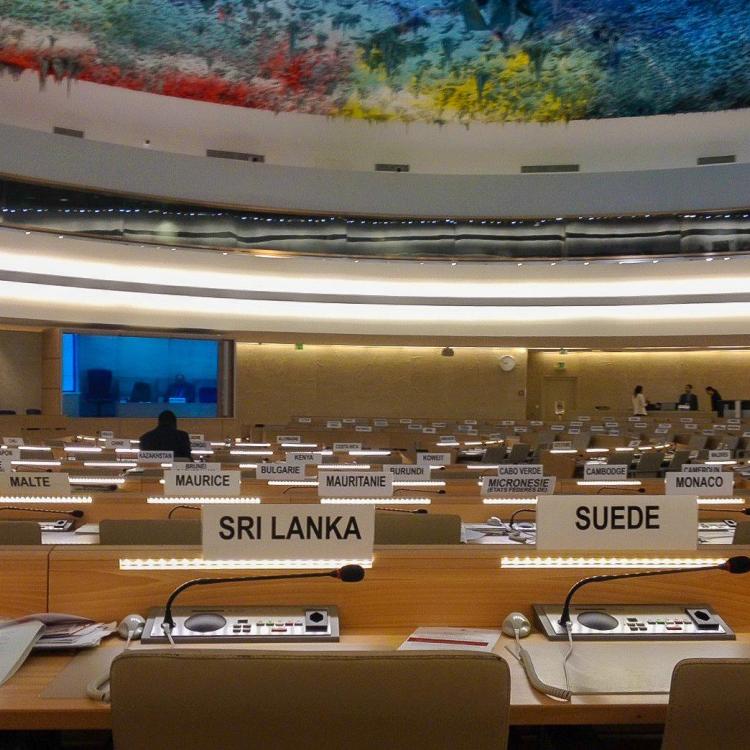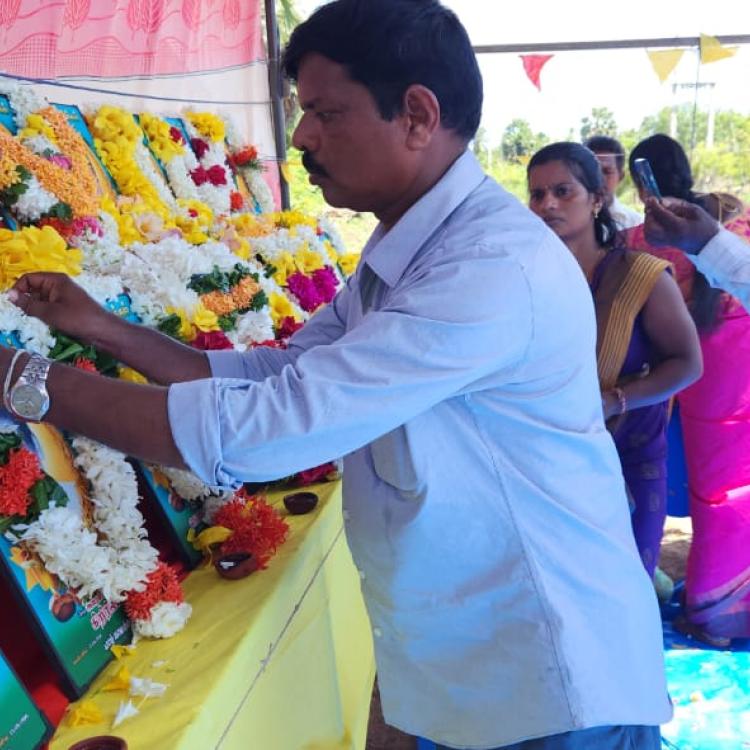The United Nations Human Rights Council (UNHRC) adopted a resolution that mandates the continued collection of evidence to be used in war crimes trials without a vote, despite the continued opposition of the new Sri Lankan government earlier today.
Resolution A/HRC/57/L.1 extends the mandate of the Office of the High Commissioner for a further year so that it can continue collecting evidence of Sri Lanka's human rights violations that may be used in future war crimes trials. It marks a simple extending of an existing resolution that was due to expire this year.
Passed earlier today in Geneva, it requests the Office of the UN High Commissioner to present an oral update to the UNHRC at its 58th session and provide a comprehensive progress report on reconciliation, accountability, and human rights at its 60th session.
According to UN documents, the adoption of the resolution will require $3,793,400, and would see staff travel across Europe, North America and to the island for “information collection” and “consultations with victims”.
Responding to the resolution, Sri Lanka expressed its ongoing opposition and urged member states to support them in addressing human rights issues through domestic mechanisms.
"Domestic mechanisms and processes that deal with reconciliation, accountability and justice will be credible and independent within the Constitutional framework, and a truth and reconciliation process that has the people’s trust will be operationalised," Sri Lanka's ambassador told the Council.
The Core Group, the penholder of the resolution which consists of Canada, Malawi, Montenegro, North Macedonia, the United Kingdom, and the United States, highlighted that through the Sri Lanka Accountability Project, the OHCHR is able to collect, analyse and preserve information and evidence of gross violations of human rights or serious violations of international humanitarian law.
"The ultimate aim is to combat longstanding impunity which has prevailed in Sri Lanka for far too long," the Core Group said.
Speaking on behalf of the EU, Belgium said the Sri Lanka Accountability Project "focuses on ensuring that reconciliation and accountability are fulfilled". They also noted that many stakeholders would have liked for the work of the OHCHR to be renewed for more than a year. Belgium explained the need to engage with the new Sri Lankan government "on how the project can best support them".
Costa Rica called on Sri Lanka's new president to "embrace and inclusive national vision" which would address the "deep causes of ethnic conflict, of corruption and impunity."
Cuba and China expressed their opposition to resolutions that "do not have the support of the country concerned". China went on to add that it also opposes the notion of using human rights "as a tool to interfere in the internal affairs of other countries."
Japan said it hoped that the new Sri Lankan authorities will “further enhance its efforts for accountability and national reconciliation through the development of a transparent domestic mechanism.”
The adoption of this resolution follows a scathing report by the OHCHR documenting human rights in Sri Lanka between the adoption of UNHRC resolution 51/L1, in October 2022 and July 2024.
The report details the prevalence of sexual abuse and intimidation against Tamil activists by Sri Lanka’s security forces; as well as concerns over continued crackdowns on memorials across the North-East; and the introduction of legislation that could be used to stifle dissent. Commenting on the issues of accountability, the report highlights that Sri Lanka’s “entrenched impunity has also manifested itself in the corruption, abuse of power and governance failures that were among the root causes of the country’s recent economic crisis”. The report concludes by advising other states to consider using other international legal options to advance accountability and raises the International Criminal Court (ICC) as a potential avenue as well as prosecutions under the principle of universal jurisdiction.
The resolution will come as a disappointment to many Tamils who will have been hoping for stronger action from the global body, given more than 15 years have passed since the atrocities that killed tens of thousands in the Mullivaikkal genocide of 2009.
Though a new Sri Lankan president took office last month, Anura Kumara Dissanayake’s government has continued the policy of his predecessors to denounce calls from Tamils for an international investigative and accountability mechanism for war crimes. During his campaign, he pledged not to punish war criminals and has even met those accused of human rights violations in his early days in office.
Read more in our editorial: Rolling over


